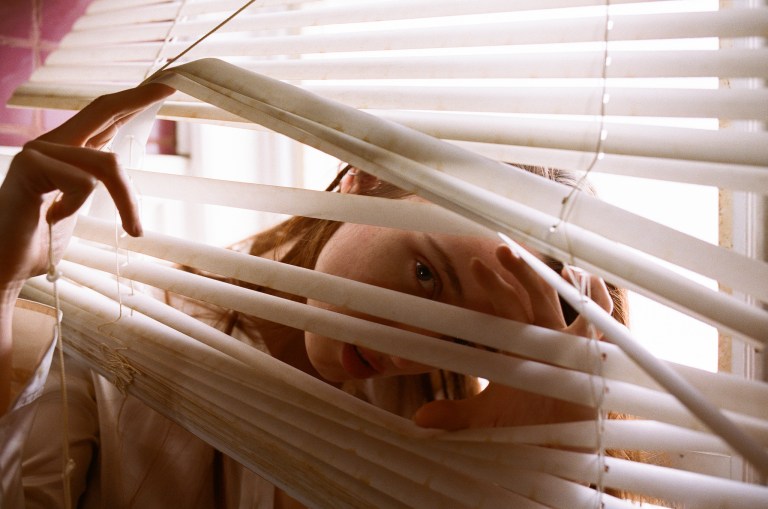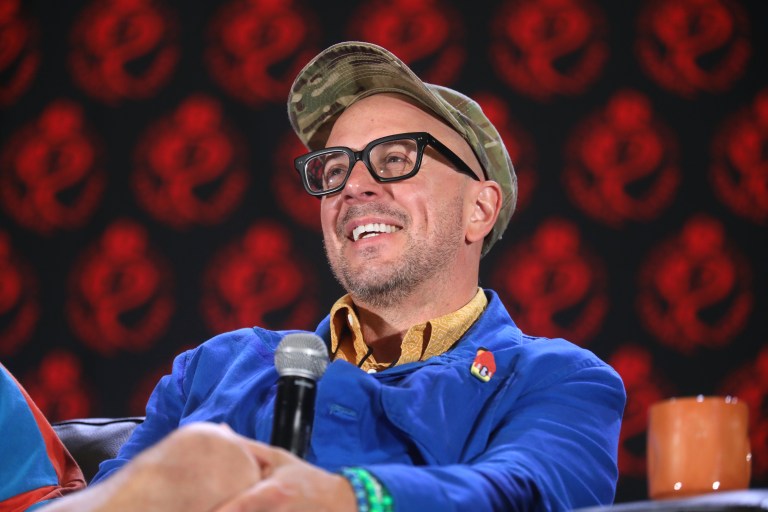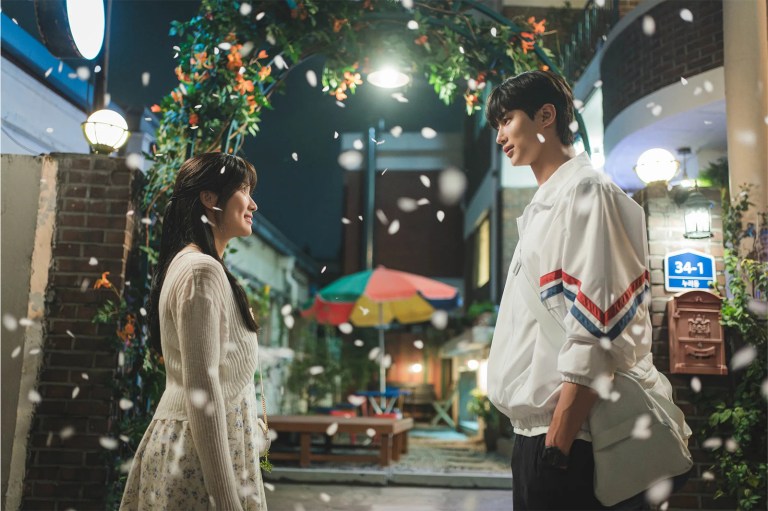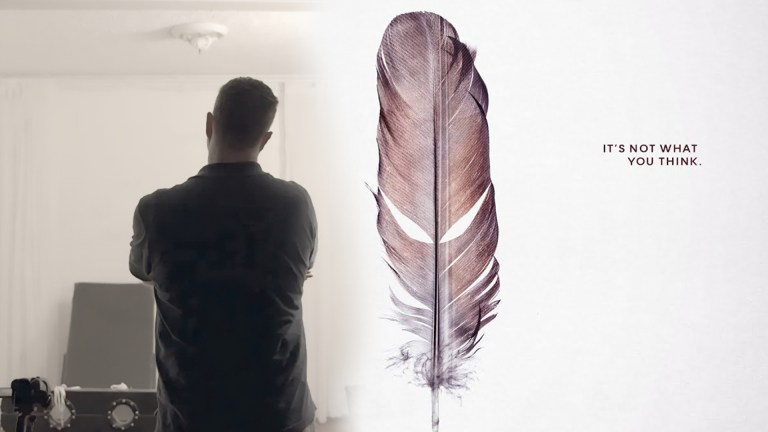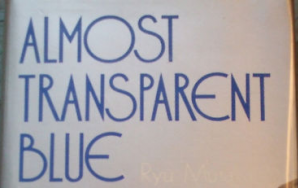
Almost Transparent Blue by Ryu Murakami
Almost Transparent Blue (1976) was written by Ry? Murakami (b. 1952) while he was a student at Musashino Art University, where he was enrolled in the sculpture program. It was his first novel and was awarded the Akutagawa Prize (Japan’s “most sought after” literary prize; previous winners include Kobo Abe and Kenzaburo Oe) and sold…
By Tao Lin
MISCELLANEOUS NOTES
Self-documentation. Ryu seems to carry a “pocket camera” with him. During the orgy in [6] he photographs Moko’s face sort of unexpectedly (“With a pocket camera, I took a close-up of Moko’s distorted face”) and I imagined someone doing that at a party and putting it on Facebook. In other scenes Kazuo repeatedly photographs his friends. At the outdoor concert in [14] Moko dances almost naked and “Two cameramen clicked their shutters at her.”
Self-containment/“lack of ‘other.’” The characters seem notably separate from mainstream society. They seem to not comment on mainstream society, and to withdraw from other people, in a manner almost like they’re shy. Which creates a feeling more of loneliness and self-loathing than “out-of-control behavior” or anger directed outwards. There doesn’t seem to be any critique of society, but mostly only of existence, or of self, or of seemingly nothing, in this book. The characters sometimes mention other lifestyles—either in the past or an imagined future—with equal consideration, or legitimacy, as the characters’ current lifestyles.
Dialogue. Sometimes within quotation marks, sometimes not. Doesn’t seem to indicate anything other than perhaps clarity or amount of attention with which the narrator is hearing or saying it. Changed within chapters sometimes. It always seemed clear to me who was speaking. Things people say are often unacknowledged, except by Ryu, in his narration. Direct questions are sometimes unanswered.
Subculture. Due to the tone and prose style—and their consistency—the conventionally “shocking” aspects of the book seemed almost “quirky” to me. I felt the same things (approval, amusement, interest) I would feel, to some degree, if I were reading about any subculture—for example professional Scrabble players, people that travel alone to Alaska, or people who are Juggalos—that has developed “inwardly” into something self-contained, due to a dissatisfaction or tested inability to “be normal.”
Failing relationships. The book portrays two failing relationships, each with its own plotline, I feel. Reiko & Okinawa have plans to get married (revealed in dialogue in [2]). Their relationship seems to conclude, in terms of the book, in [17], with Reiko berating Okinawa, who seems indifferent and says “So do what you want.” Kei & Yoshiyama have plans to go to Hawaii together. In [4] Kei says “Ah don’t care if we break up, ya might not like it but Ah’d be O.K.” Later in [4] Yoshiyama says to Ryu that they sleep separate every night. Their relationship seems to conclude, in terms of the book, also in [17], with Kei completely ignoring Yoshiyama, who after beating her and attempting suicide is now sometimes sort of calmly attempting to talk to her again, in Ryu’s apartment.
Birds. Mentioned throughout. The focal point of Ryu’s incoherence at the end of [19] seems to be “black birds,” which are first mentioned by Green Eyes, who in [10] says to Ryu “You’ll get to see the black bird sometime, too, you haven’t seen it yet, but you, you’ll be able to see the bird, you’ve got them kind of eyes, same as me.” Then grips Ryu’s hand.
Insects. Focused on throughout. Round beetles, cockroaches, moths. Ryu describes in [1] having killed a roach crawling on a paint palette and seeing “bright fresh purple” juice and that “Since there’d been no purple paint on the palette, I thought red and blue must have mixed together in that little belly.” In [18] he squashes “the belly of a moth with black and white stripes” on the back cover of a collection of poetry by Mallarmé. Seems to be a focus incidentally, in that Ryu seems focused on small details, for example at the end of [11] he tosses away his lighted cigarette and “it made a little noise and went out before it reached the ground.”
Vomiting. Someone vomits, on average, maybe every two pages, in an almost “offhand” manner. Ryu seems sensitive to smells, in terms of vomiting. In [6] he “[dashes] to the toilet and [throws] up” after an “odd smell” comes from Moko’s body. In [15] he relates (to the reader) that “Last night when I’d reached my room, I’d smelled the pineapple and thrown up violently.”
Race. All, or most, I think, of the Americans on the air force base near Ryu’s apartment are black. In [14] Ryu says “…when there’re blacks around it’s cool, because they’re really something else, blowing grass and pouring vodka and then while they’re stone playing the best kind of sax, you know, really something else.” The word “nigger,” translated from something in Japanese, occurs maybe five times in the book, as spoken by Moko and Yoshiyama and, once, Ryu, who in [4] says “And listen, Moko, you’ve got to stop saying nigger, they’ll kill you, they can understand that much Japanese.”
Violent impulse discussion. At the end of [4] Ryu and Yoshiyama go outside to vomit. As they’re walking back inside, after vomiting, Yoshiyama says that when he is vomiting fully, and “can hardly stay on my feet and [can’t] see good” is the only time he “really want[s] a woman.” He says “Well, even if there was one around, I couldn’t get it up and it’d be too much trouble to open her legs, but anyway I still want a woman. Not in my prick or in my head, but my whole body, all of me, is just squirming for it. How about you? Do you get what I mean?” Ryu says “Yeah, you want to kill her, rather than fuck her?” Yoshiyama says “That’s it, that’s it” and some other things. The discussion surprised me and I think made me have a different, closer, more emotional connection with the book’s characters and author because I feel that usually in books containing violence the author seems to either vaguely distance him or herself from the characters or withhold commentary completely. Here I felt like the characters’ violent impulses, or thoughts, were less “destructive” and “evil,” or “unexplainable,” than “desperate” and emotional, in the same manner a character might feel like killing themselves or satisfying any indefinite desire. The man wants a woman in the abstract, and if the woman is still alive, still exists, she is concrete and can go against what the man exactly wants. But in the abstract the woman can be exactly what the man wants. I feel like “a woman” in this can accurately be replaced with “oneself” or maybe anything.
Drugs used or mentioned. Nibrole, heroin, whiskey, brandy, gin, wine, vodka, morphine, Philopon (a methamphetamine), hashish, mescaline, acid, glue, Hyminal, marijuana.
Cultural/brand references. The Rolling Stones, Mick Jagger, Billie Holiday (spelled in book as “Billy Holiday”), “A Certain Smile,” “Sticky Fingers” (“…this is the latest Rolling Stones, ya haven’t heard it, have yau It’s ‘Sticky fingers’), Mal Waldron, Osibasa, James Brown, Charlie Mingus, Jim Morrison, Schubert, Schumann, Brahms, Osibisa, Led Zeppelin, Jimi Hendrix, Pink Floyd, The Doors, Boz, “Me and Bobby Magee,” “It’s a Beautiful Day,” Naniwabushi (a genre of traditional Japanese narrative singing), Van Gogh, Elia Kazan, Stéphane Mallarmé, The Charterhouse of Parma, Jean Genet (“Like the splendid men of Genet’s novels…”), Marlon Brando, Kirk Douglas, Faye Dunaway, Woodstock, Calpis (uncarbonated soft drink), Coca-Cola (“…she drank a coke…”), Kool (brand of cigarette), Max Factor, Revlon, Kanebo, Dior, Muramatsu (“a kind of flute”).
